Tanya
Tucker

-
Inducted2023
-
Born
October 10, 1958
-
Birthplace
Seminole, Texas
A commanding performer with a distinctive, husky voice, Tanya Tucker has been a resilient and high-spirited presence within country music for more than fifty years. Successful from the very start, she has weathered career lulls and intense tabloid scrutiny and always emerged still vital.
“People with lesser reserves could not have lived her life and still be commanding the spotlight,” Daniel Cooper wrote in the Journal of Country Music. “What the pickers and fans understand is that Nashville, and the wide world of country music, would be a whole lot duller without Tanya Tucker around.”
A Talent Beyond Her Years
Born October 10, 1958, Tanya Denise Tucker is the youngest child of Beau and Juanita Tucker, who were teenagers when they married. The Tucker family, which also included older siblings Don and LaCosta, lived in Denver City, Texas, when Tanya was born but moved often as Beau chased day-labor jobs. They lived in Arizona for much of Tanya’s childhood but also spent time in St. George, Utah—a small town on the Arizona border—and in Henderson, Nevada, to be near the Las Vegas entertainment industry.
Country music was a frequent soundtrack to life in the Tucker home, along with Frank Sinatra and The Lawrence Welk Show’s Lennon Sisters. Tanya remembers singing along from the time she could talk and has often described herself as a free-spirited child who felt older than her years.
Tucker credits her third-grade music teacher with teaching her the power of her alto vocal range, and her father taught her to believe she could do anything she set her mind to. While Beau Tucker is often painted as the driving force behind her career, Tanya herself was already serious about her singing—so serious, in fact, that she quit a steady gig on The Lew King Ranger Show, a Phoenix-based children’s television program, after a few months because she yearned for more grown-up material. Beau and Juanita took her to local haunts where she could get up and sing with adult bands. Emboldened by Tanya’s rapidly emerging abilities, Beau and Don would often approach touring artists—including Judy Lynn, Mel Tillis, and Ernest Tubb—at local shows to talk them into letting Tanya sing with them.
In 1968, she and Beau drove to Nashville, to make demo tapes and search for a record deal. It took a few more years—and a couple rounds of demos—however, before occasional Hollywood actor and songwriter Dolores Fuller brought Tanya to the attention of Columbia/Epic Records A&R chief Billy Sherrill, who signed Tucker and brought her to Nashville to record her first album.
“Delta Dawn” and Teenage Stardom
In 1972, Tucker became a star at thirteen when her first single, “Delta Dawn,” reached #6 on the country charts. That first big hit, along with other early successes—“What’s Your Mama’s Name,” “Blood Red and Goin’ Down,” and “Would You Lay with Me (In a Field of Stone),” all #1s in 1973–1974—tackled mature subjects, which Tucker handled with precocious skill. Such songs, along with her public persona, helped her largely avoid being labeled a child star. As Chet Flippo wrote in a 1974 Rolling Stone cover story, “She has a natural stage presence that is all things to all people. . . . MCs throughout the country pronounce her ‘delightful.’ Nashville’s country stars think of her as a real pro. Middle-aged audiences describe her as a charming entertainer. Lechers see her as a torrid teenaged sex-pot and prepubescent boys look on her as a Holy Grail.”
On her sixteenth birthday, Tucker signed a $1.5 million contract with MCA Records, enticed also by the label’s vision for crossover success. Her first MCA release, a 1975 self-titled album with pop producer Snuff Garrett, yielded two country #1s (“Lizzie and the Rainman” and “San Antonio Stroll”). But because she was allowed only minimal creative input during those sessions, she returned to working with a Nashville-based team, led by producer Jerry Crutchfield, for her next three albums. Crutchfield allowed Tucker to be more hands-on and gained her trust, but his insistence on moving slowly towards a fully adult sound and image frustrated her. “It was that dissatisfaction that started me down the road to new managers and new producers, and it almost destroyed my country career,” Tucker wrote in her 1997 memoir, Nickel Dreams: My Life.
Overseen by L.A. rock producer Jerry Goldstein, Tucker’s 1978 album, TNT, made the desired splash, both because of its suggestive cover artwork and because it leaned into her love of rock and pop, though the album’s final track, the Top Five single “Texas (When I Die),” remains a country favorite. When she moved to Los Angeles that same year, her personal life became tabloid fodder: she was a regular in the local party scene and began a tumultuous relationship with Glen Campbell. Tucker kept her music career going with two Top Ten hits in 1980 (“Pecos Promenade” and “Can I See You Tonight”) and a 1982 album on Arista, but by her twenty-fifth birthday, she was without a record deal and viewed by some in the music industry as a has-been.
A New Record Deal and Resurgence
Still, she persisted. After multiple labels turned Tucker down, Jerry Crutchfield ushered her to a deal with Capitol Records, where she remained into the early 2000s. With freedom to weigh in on song selection, she notched twenty-four Top Ten singles between 1986 and 1997, including “Love Me Like You Used To,” “I Won’t Take Less Than Your Love” (with Paul Davis and Paul Overstreet), “Strong Enough to Bend,” ”If It Don’t Come Easy,” “Down to My Last Teardrop,” “If Your Heart Ain’t Busy Tonight,” and “Two Sparrows in a Hurricane.” In 1991, Tucker earned her first Country Music Association Female Vocalist of the Year trophy. She watched the ceremony on television in the hospital, where she had given birth to her second child earlier that day.
Tucker’s recorded output slowed in the early 2000s, but she experienced a dramatic career resurgence in 2019, after she began working with fellow musicians and admirers Brandi Carlile and Shooter Jennings. The pair co-produced the album While I’m Livin’, which won Tucker two Grammys—the first of her career. Earlier this year, Tucker released a second album co-produced by Carlile and Jennings, Sweet Western Sound.
Though Tucker has experienced more than her share of career setbacks, she has weathered them all. Meanwhile, her influence as a song stylist and as a strong, independent role model for women artists in country music continues to become more apparent as the years go by.
As Carlile told The Tennessean, “There would be no Miranda, no Brandi, no Gretchen, no Maren without Tanya Tucker.”
—Angela Stefano Zimmer
00:00 / 00:00
00:00 / 00:00
00:00 / 00:00
“There would be no Miranda, no Brandi, no Gretchen, no Maren without Tanya Tucker.” –Brandi Carlile
-
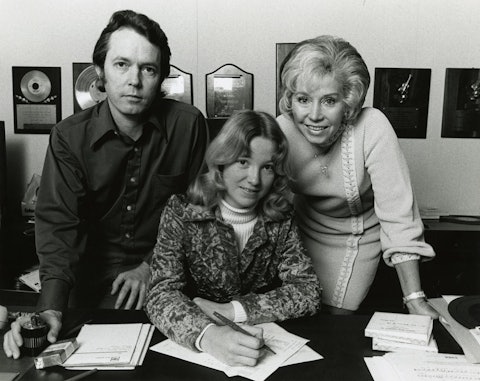
Tanya Tucker, center, signs a recording contract with Billy Sherrill (left) and Dolores Fuller (right)
-
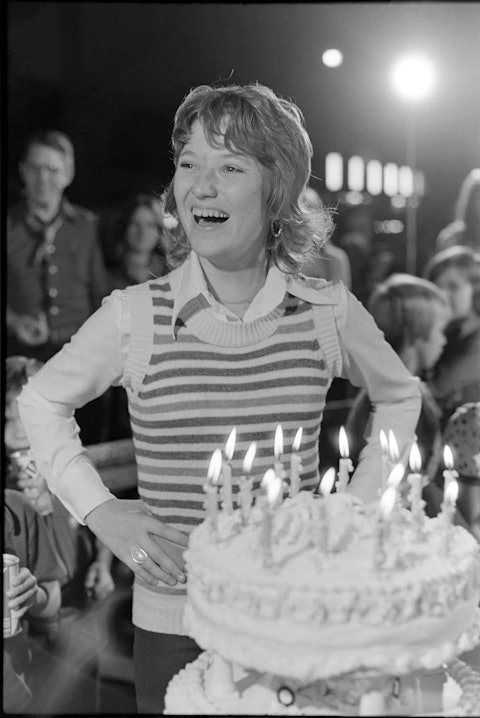
Tanya Tucker standing behind her 16th birthday cake in Little Rock, Arkansas, 1974. Photo by Raeanne Rubenstein.
-

Tanya Tucker, 1975. Photo by Raeanne Rubenstein.
-
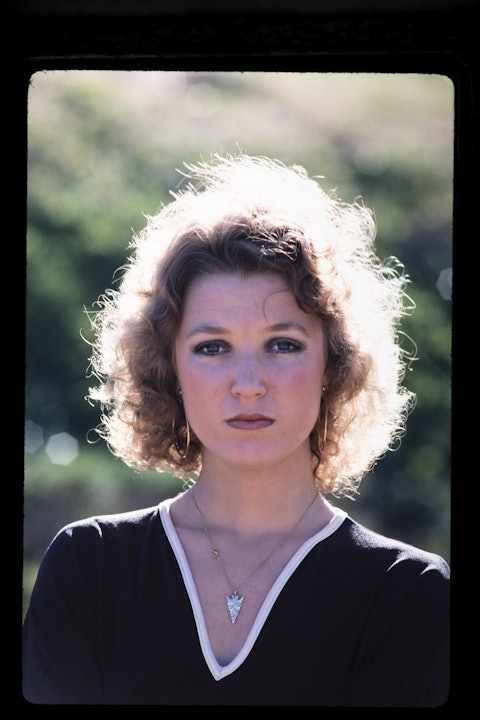
Tanya Tucker, 1976. Photo by Leonard Kamsler.
-
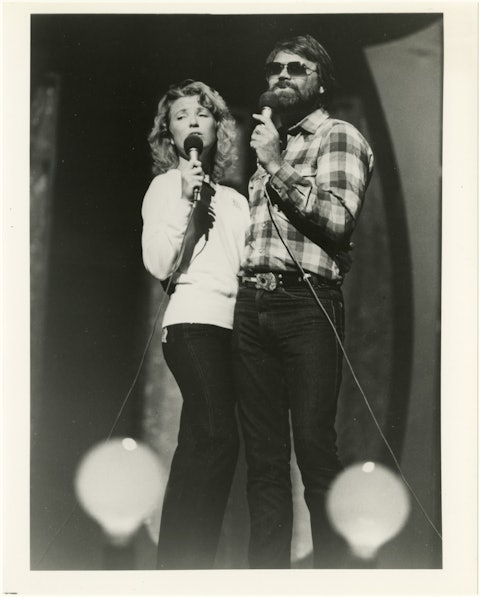
Tanya Tucker and Glen Campbell, c. 1980s.
-
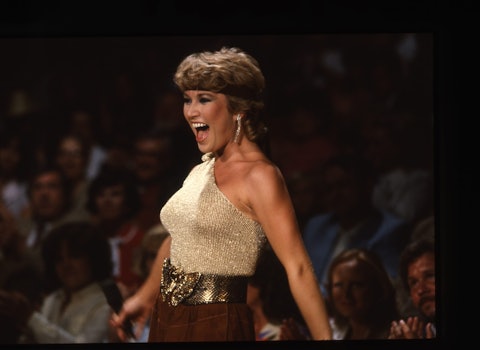
Tanya Tucker, 1985.
-
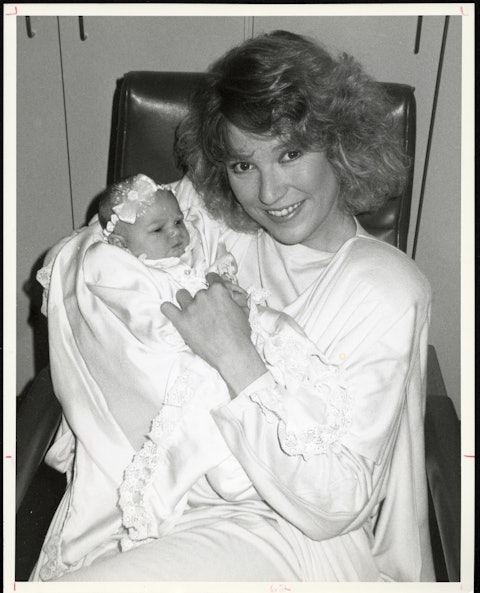
Tanya Tucker holds her first child, Presley, 1989.
-

Country Weekly headshot of Tanya Tucker, 1994.
-

Publicity photo of Tanya Tucker for While I’m Livin’, 2019. Photo by Danny Clinch.



